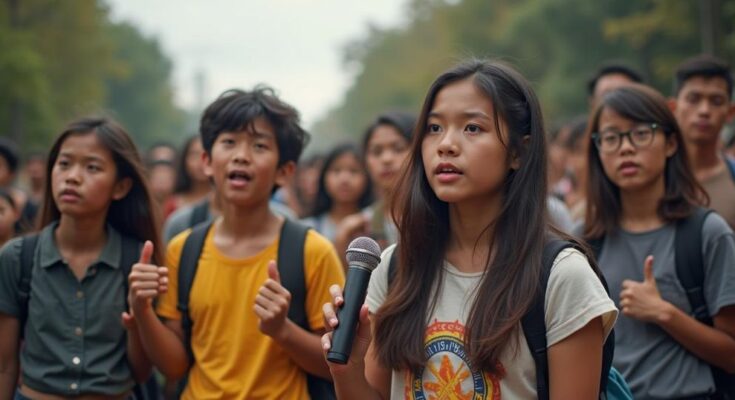Amnesty International reveals in a new report that Philippine authorities are increasingly using Facebook to execute red-tagging campaigns against young activists. This practice, which involves labeling individuals as communist rebels or terrorists, leads to severe threats and real-world violence, exacerbated by the government’s misuse of anti-terror legislation. The report highlights the urgent need for reforms to protect human rights defenders and calls on Meta to enforce stricter content moderation practices against such harmful rhetoric.
In recent times, Philippine authorities have escalated their tactics against young activists, particularly through social media platforms like Facebook. Amnesty International’s new report reveals how under the administration of President Ferdinand Marcos Jr., there has been an alarming rise in the practice known as “red-tagging.” This involves labeling activists as “Communist rebels” or “terrorists,” a tactic that systematically incites violence and intimidation against those exercising their right to free speech and protest. The report, titled “I turned my fear into courage: Red-tagging and state violence against young human rights defenders in the Philippines,” highlights a chilling connection between online harassment and real-world consequences. Young activists, such as environmental defender Rowena Dasig, have faced grave dangers, with Dasig reported missing amidst fears of enforced disappearances targeting dissenters. Activists describe an ominous atmosphere where being labeled online translates to actual threats, prompting a rampant culture of fear and self-censorship. For example, 26-year-old Ana reflects on this precarious existence, stating, “When you’re harassed online or when you’re posted online, that makes you a target. … It would make you think that you wouldn’t want to be an activist because your life would be put in danger.” The surge in red-tagging was particularly pronounced during the rule of former President Rodrigo Duterte, where inflammatory posts proliferated on platforms like the National Task Force to End Local Communist Armed Conflict (NTF-ELCAC) page. The current administration continues this troubling legacy, which is bolstered by legislation like the Anti-Terrorism Act of 2020, empowering authorities to detain activists without due process. Worryingly, Meta, the parent company of Facebook, has faced criticism for its failure to regulate harmful content effectively. Despite numerous reports from activists, Meta appears to inadequately enforce its community guidelines against red-tagging, allowing dangerous rhetoric to persist unabated. Wilnor Papa from Amnesty International Philippines critiques this carelessness, noting that Facebook’s inadequate content moderation has transformed it into a breeding ground for human rights abuses. In response to these alarming developments, Amnesty International calls for an immediate cessation of the red-tagging campaign, urging the Philippine government to dismantle oppressive structures and for Meta to enhance its moderation policies against such grave human rights violations. Until these changes are made, the safety of young activists remains perilously at stake.
The Philippines has witnessed an escalating trend of harassment against young activists under the pretext of national security. With the rise of digital platforms as tools for social change, the government has capitalized on social media to silence dissenting voices. This phenomenon of red-tagging—labeling individuals as communist sympathizers or terrorists—has intensified, particularly after the enactment of laws deemed as anti-terrorist measures. Young activists, often at the forefront of various causes, find themselves caught in this crossfire, facing both cyber and physical threats that compromise their safety and right to free expression.
The findings presented by Amnesty International illustrate a troubling intersection of technology and state repression in the Philippines, where young activists find themselves under siege. The persistent practice of red-tagging not only undermines freedom of expression but also poses real dangers to individuals who wish to advocate for change. To ensure the safety and rights of these defenders, immediate action is required from both the government and social media platforms to halt this cycle of violence and intimidation.
Original Source: www.amnesty.org



